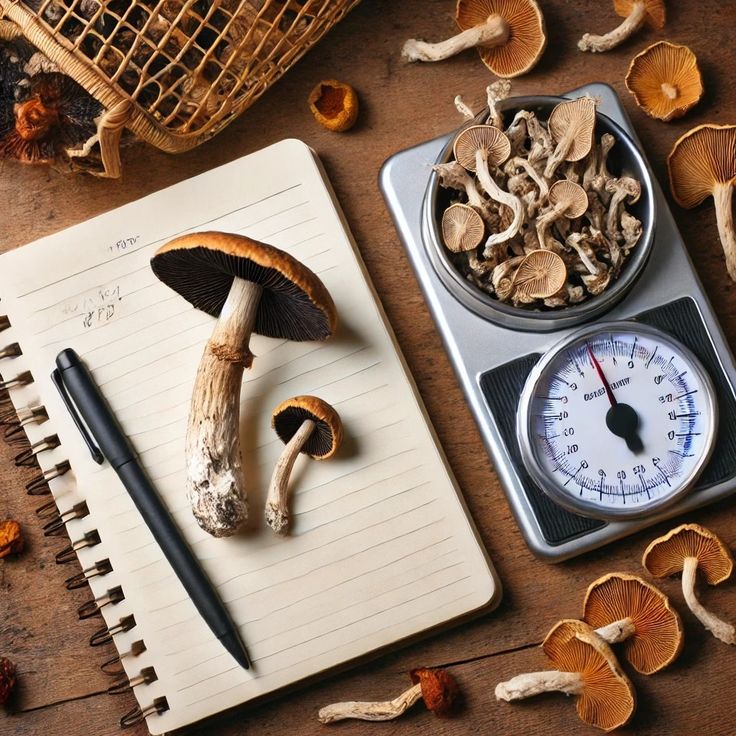Mushroom
Benefits of Microdosing Psilocybin for Mental Health
Benefits of Microdosing Psilocybin for Mental Health:
Unlocking the Potential of Psychedelics
Benefits of Microdosing Psilocybin. The use of psychedelics for mental health treatment has been a topic of intense research and debate in recent years, with microdosing psilocybin emerging as a popular alternative therapy. Many people struggling with mental health issues like depression, anxiety, and PTSD are exploring this emerging practice in the hopes of finding relief.
What is Microdosing Psilocybin?
Microdosing psilocybin refers to the practice of consuming a very small, sub-perceptual dose of psilocybin mushrooms – typically about 0.1 to 0.3 grams of dried mushrooms. The goal is not to experience the hallucinogenic effects commonly associated with psychedelics, but rather to tap into the subtle cognitive and emotional benefits that some users report.
How Does Microdosing Psilocybin Benefit Mental Health?
- Reduction of Anxiety and Depression
Additionally One of the most promising areas of research on psilocybin for mental health is its potential to treat anxiety and depression. In clinical studies, psilocybin has shown promise in significantly reducing symptoms of depression, even in people with treatment-resistant depression.
- Improved Focus and Cognitive Function
For many, microdosing psilocybin is seen as a tool for enhancing mental clarity and focus. Psilocybin’s effects on the brain are thought to facilitate greater connectivity between different brain networks, potentially boosting cognitive function and improving problem-solving abilities.
- Emotional Regulation and Increased Well-Being
One of the key mental health benefits of psilocybin is its potential to help with emotional regulation. Many users of microdosing psilocybin report feeling more emotionally balanced and capable of handling stress in a calm and centered way. This could be especially beneficial for people dealing with chronic stress, PTSD, or mood disorders.
The Science Behind Microdosing Psilocybin and Mental Health
Recent research on psilocybin therapy has shown that psychedelics can have profound effects on the brain, particularly in how neural networks interact. Psilocybin affects the serotonin system, which plays a crucial role in regulating mood, cognition, and emotions.
When taken in sub-perceptual doses, psilocybin is believed to stimulate neuroplasticity, allowing the brain to form new connections and pathways. This is particularly beneficial for individuals suffering from mood disorders or trauma, as it could help break free from ingrained negative thought patterns and improve emotional flexibility.
How Microdosing Helps Mental Health Conditions
- Psilocybin for Depression and Anxiety
Research into psilocybin for depression and anxiety suggests that psychedelics can bring about lasting changes in how the brain processes emotional experiences. Microdosing may provide a more subtle, but still significant, impact on reducing the symptoms of these conditions. - Microdosing Psilocybin for PTSD
Post-Traumatic Stress Disorder (PTSD) is another condition that microdosing psilocybin may help treat. Some studies have suggested that psychedelics can play a key role in emotional healing and trauma processing, with psilocybin helping to create new neural pathways and foster healthier emotional responses. - Cognitive Benefits
Microdosing can also benefit those who struggle with cognitive decline, brain fog, or attention deficits. By improving focus and memory, microdosing psilocybin mushrooms may help individuals feel more mentally clear and alert, improving their overall quality of life.
How to Microdose Psilocybin Safely
If you’re interested in exploring the mental health benefits of microdosing psilocybin, it’s crucial to approach it responsibly. Here are a few tips for safe microdosing:
Start Slow: Begin with a very low dose and gradually increase it to find the right amount for you.
Track Your Experience: Keep a journal to track how you feel, your mood, and any changes you notice. This can help you understand how microdosing is affecting your mental health.
Take Breaks: Many people find that microdosing works best when done in cycles, such as dosing every third day, to avoid building tolerance.

